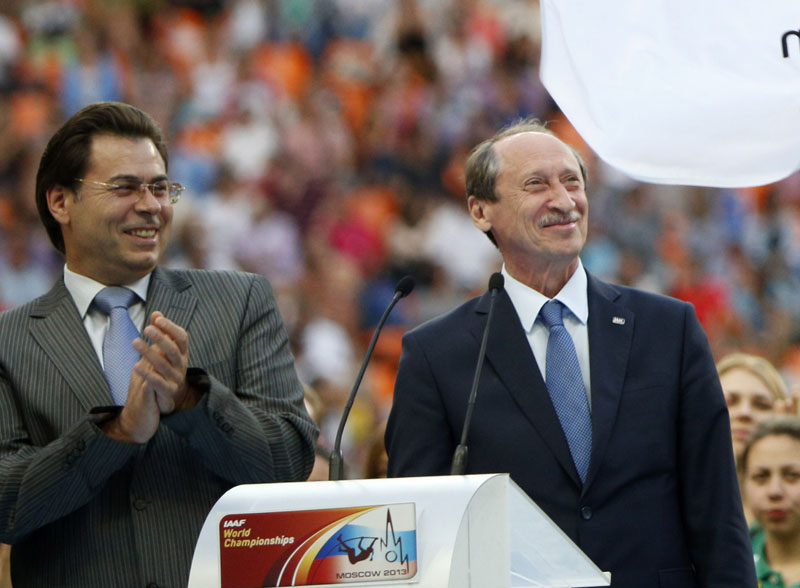Diack's son, 2 Russians banned for life in IAAF scandal
LONDON: The son of former IAAF president Lamine Diack and two Russian officials were banned from track and field for life on Thursday after an investigation into blackmail, extortion and doping cover-ups.
A fourth official, former IAAF anti-doping director Gabriel Dolle, received a five-year ban from the ethics commission of the International Association of Athletics Federations.
Banned for life were Papa Massata Diack, who worked as an IAAF marketing consultant; former Russian athletics federation head Valentin Balakhnichev, who was also honorary treasurer of the IAAF; and Alexei Melnikov, former head coach of Russia's race-walking and long-distance running programs.
The sanctions centered on the case of Russian marathoner Liliya Shobukhova, who was allegedly extorted out of hundreds of thousands of dollars to avoid a doping ban before the 2012 London Olympics.
In addition, Papa Massata Diack and Balakhnichev were fined $25,000 and Melnikov was fined $15,000.
Dolle was banned only for five years because "his sins were those of omission, not commission," the IAAF panel said.
The investigation followed a report by German broadcaster ARD in December 2014 alleging that former Chicago Marathon winner Shobukhova paid 450,000 euros ($520,000) to Russian officials, who threatened her with a doping ban before the London Games.
When Shobukhova was initially banned for two years in 2014, her husband reportedly received a 300,000 euro ($345,000) refund payment linked to Balakhnichev. Then treasurer at the IAAF, he stepped down within days of the program being broadcast.
Thursday's verdicts are separate from the criminal investigation in France into former IAAF officials. Lamine Diack was taken into custody by French authorities in November on corruption and money-laundering charges, suspected of taking more than 1 million euros ($1.1 million) to blackmail athletes and cover up positive tests.
Dolle and Habib Cisse, Diack's legal adviser at the IAAF, were also detained and charged with corruption in France.
In a statement, the IAAF said it was "angered" that the officials sanctioned by the ethics panel "conspired to extort what were in substance bribes from the athlete by acts of blackmail."
"The IAAF has already introduced corrective measures to make sure this sort of interference can't happen again," it said, adding that the four banned officials are "no longer associated with the IAAF in any capacity."
"The life bans announced today could not send a stronger message that those who attempt to corrupt or subvert the sport of athletics will be brought to justice," IAAF President Sebastian Coe said.
The ethics sanctions were announced a week before a World Anti-Doping Agency commission, headed by Dick Pound, delivers the second part of a report into allegations of widespread doping in track and field. The report is expected to focus on allegations made by British and German media outlets of rampant blood doping, based on leaked information from an IAAF database.
Pound's first report alleged state-sponsored doping and corruption in Russia. The findings led the IAAF to suspend Russia's athletics federation, leaving the country's track and field athletes in danger of missing the 2016 Olympics in Rio de Janeiro.
An IAAF task force will visit Russia on Sunday and Monday to inspect the country's response to the scandal.






